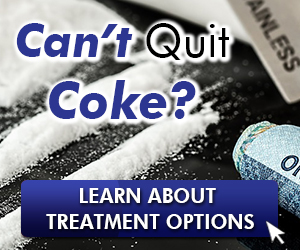I Only Use Cocaine When Drinking. Am I Addicted?
Many cocaine users justify their habit by telling themselves that they only ever do coke when drinking. But does this really count as ‘recreational coke use’? We tackle this issue in-depth below.

It’s Friday night, and you’ve just finished a long week of work. You’re meeting your mates for a few pints, and that invariably turns into a few more. Before long, someone broaches the possibility of buying a gram of cocaine. “It’s the weekend,” you tell yourself. You’ve earned it! And besides, you only do coke when you’re drinking – and only special occasions like this.
But a few drinks can easily turn into a few more, especially at the weekend. And the lines of coke tend to multiply with the alcohol. Before long, you’ve had more than anticipated – again.
For some, this scenario plays out more often than they care to admit. They console themselves with the fact that they only do coke when they’re drinking – and even then, only on what they deem to be special occasions. This isn’t the behaviour of an addict, they insist. Addicts use every day.
But the reality is that addiction manifests in varying degrees, and you don’t have to use cocaine every waking hour of every day in order to register on the addiction scale. In fact, if you’ve found yourself wondering how to stop doing coke when drinking, then you’re already on a very slippery slope.
Why it’s Best to Stop Doing Coke When Drinking
If you’ve convinced yourself that your cocaine use is purely recreational and not anywhere near the threshold of addiction, it’s wise to take a step back and reconsider. This is particularly true if you’ve caught yourself trying to downplay your use by chalking it up to something you occasionally do when drinking.
To begin with, it’s important to understand that the fact you only resort to using cocaine after a few cocktails or glasses of wine does not place you in a strictly recreational category. Most cocaine users take the drug concurrently with alcohol. This is the rule, rather than the exception, and it shouldn’t be viewed as an indicator of addiction. Furthermore, there’s evidence to suggest that drinking alcohol actually makes you more susceptible to outright cocaine addiction.
Secondly, the question of whether or not a category of ‘recreational use’ even exists for cocaine is debatable. Most users who consider their use recreational would actually qualify as heavy users on nearly any objective scale. If you’re using coke with any notable frequency, then there’s a good chance you’re well outside the bounds of what an addiction specialist would consider a recreational user.
Failing to Stop Doing Coke When Drinking Could Be Hazardous to Your Health
Addictive potential aside, there are strong health–related reasons to get cocaine out of your life altogether. Research continues to demonstrate that even modest use can lead to serious, chronic damage to your body.
Researchers at Royal North Shore Hospital in Sydney set out to determine whether otherwise healthy adults who used cocaine socially. The study – which was presented at the American Heart Association Scientific Sessions – found that those who used cocaine on what they considered a social basis were at an elevated risk of heart-related diseases, including the following:
- High systolic blood pressure
- Aortic vascular stiffness
- Left ventricular mass
One of the researchers, Dr Gemma Figtree, had some telling insight into her test subjects. “People seem to be very ill–informed about this risk,” she said.
And of the all–male subjects involved in her study, she said, “These guys were using cocaine usually once or twice a week, usually related to work, but considered it to be just a social thing. They were quite shocked to learn that it could cause a potentially fatal heart attack.”
It’s Time to Stop Doing Coke When Drinking
Light or occasional cocaine use can quickly escalate to addictive levels. That’s simply the nature of this drug. And even if you only use coke socially or recreationally, there’s still a good chance that you’re putting your body at an elevated risk of cardiovascular problems or even cardiac arrest.
If you’re ready to put an end to your cocaine use, we can connect you with the assistance you need. Take a moment to fill out our confidential online assessment, and one of our representatives will get in touch with you shortly.


